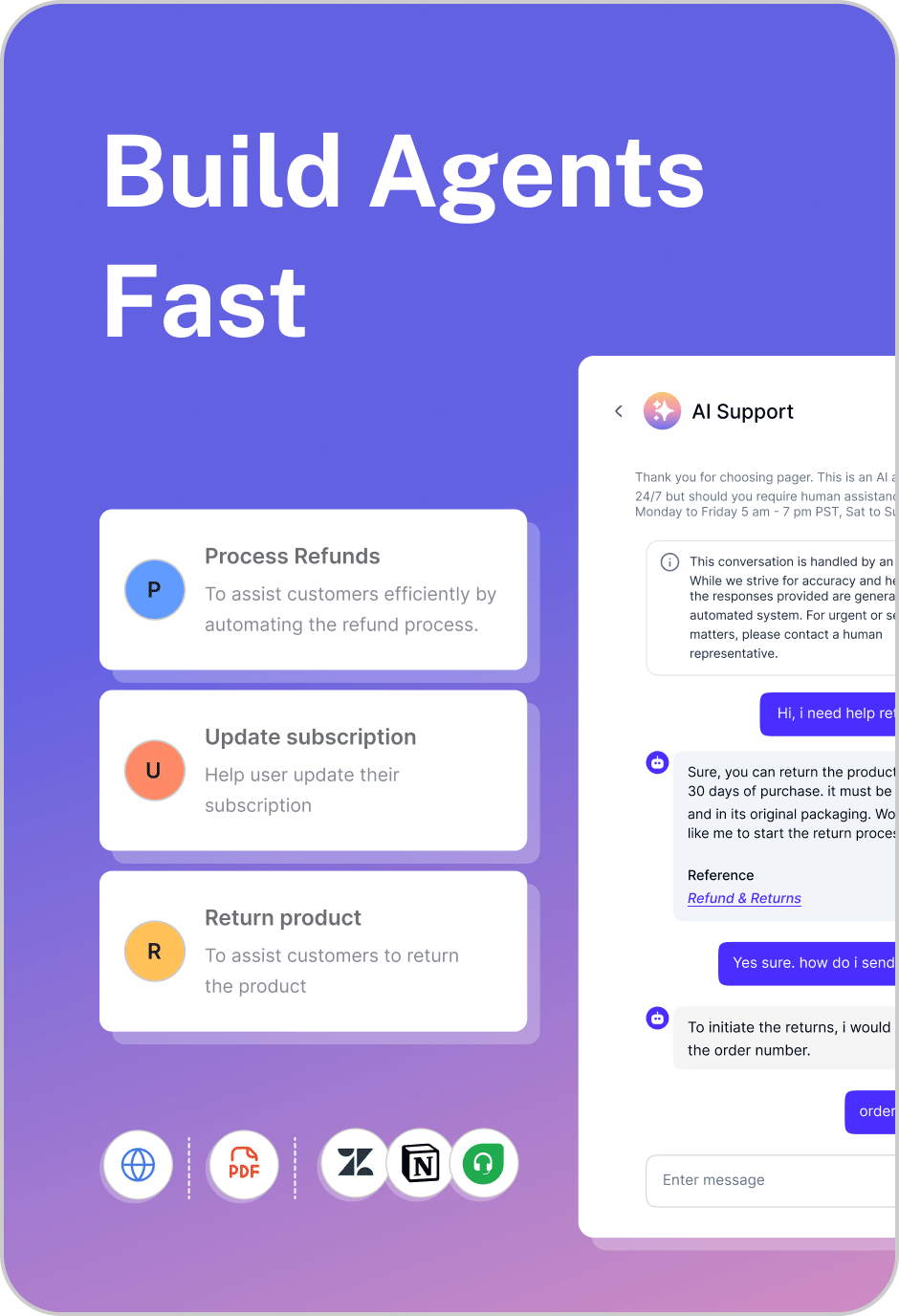
Connect with Apps, Capture Leads, and Go Live
Your tech users are spread across channels. pagergpt supports full deployment to:
Website chat
Slack (internal or external)
Discord (developer communities)
WhatsApp or Messenger
Easily add custom GPTs to your website with branded widgets and customized flows.
You can also embed lead qualification questions and sync answers to your CRM see more on lead qualification chatbots.
Setup Live Human Handover
If a user is stuck or expressing frustration, pagergpt triggers customer query resolution through a live agent escalation. Handover happens in real-time through the shared live inbox, with full chat history.
With pagergpt, training and deployment is fast and intuitive
pagergpt is designed to help tech companies from startups to unicorns build AI Agents that handle support, lead capture, and onboarding with precision.
Features That Power Technology AI Agents in pagergpt
AI Agent Studio - Design flows for API key generation, platform onboarding, pricing education, or feature FAQs with prebuilt templates and prompt logic.
Real-Time Integrations - Connect your tech stack GitHub, Notion, Slack, or Docs and create a single AI interface that pulls content from trusted sources.
Automated Dev Support Tasks - Use automated customer support for tasks like logging a bug, syncing feedback, or triggering onboarding emails.
Multi-Channel Deployment - Go live across web, Slack, Discord, and messaging platforms with consistent logic and tone.
Lead Enrichment and Routing - Capture lead info job title, company size, use case and route high-intent leads to your sales team for fast follow-up.
Insights and Analytics - Track top developer questions, escalation rates, and intent clusters through AI insights.
Security & Compliance - pagergpt is ISO 27001, SOC II, and GDPR compliant ideal for enterprise software or API-first products.
Flexible Pricing for Fast-Growing Tech Teams
pagergpt uses session-based pricing with unlimited messages, ideal for SaaS companies, API platforms, and dev tools that experience fluctuating user activity.
→ View details here: pagergpt pricing.






